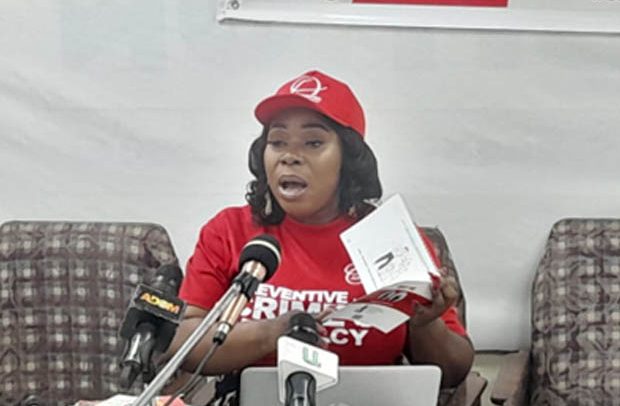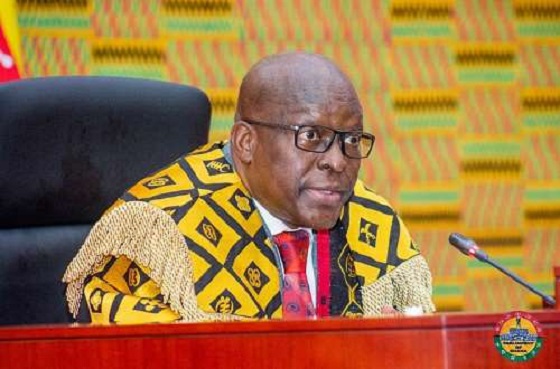
The Africa Centre for Energy Policy (ACEP) has said for the government to win the fight against the illegal small-scale mining, popularly known as ‘galamsey’ in Ghana, it was important for it to identify the invisible powers behind the trade.
It said the uncontrolled destruction of the environment for precious minerals, particularly gold, highlighted a collective irresponsibility of small-scale miners, chiefs, politicians, land sector agencies, the Environmental Protection Agency (EPA), security agencies and other relevant regulators of the sector who looked on while lives, lands, water bodies and cash crops were destroyed to the detriment of both current and unborn generations.
A statement issued and signed by its Deputy Executive Director, Mr Benjamin Boakye, on April 10 said one major impediment of the fight against ‘galamsey’ by previous governments was the invisible powers behind it.
“One major impediment to the success of these efforts has been the invisible powers behind illegal mining activities. Some of the faces that show up in the day against ‘galamsey’ are also the same ones that are, at night, behind the dredging of river bodies, the destruction of cocoa farms and the abandoned pits that serve as death traps in many mining communities,” the statement said.
It added; “If current efforts will be successful, responsibility must be placed right where it belongs. We cannot win the battle against ‘galamsey’ if those held accountable live in Accra and are out of touch with suffering communities.”
The statement also added that the government must decentralise accountability to chiefs, district chief executives, local-level leadership of the EPA, district commanders of the state's security agencies, as well as other duty bearers in the sector.
“These must have primary responsibilities for the sustenance of the environment and be required to give accounts of their stewardship to local communities and the Central Government. Central Government must, however, be on the beat to support local authorities with security reinforcement and logistics when needed. Civil society groups and the general public must also provide the needed oversight to keep all duty bearers in check,” it further explained.
ACEP, the statement said, had already taken steps to ensure that Ghana's mineral resources had transformative effects on local communities.
“Over the past two years, ACEP has piloted a mining portal that provides real-time, GPS verifiable information on mining activities. The platform, www.ourmineralresource.org, has so far been used to gather real-time data on mining impacts in the Fanteakwa and Asutifi districts through community volunteers, using smart devices,” it said.
Mounting pressure
There are ongoing efforts to respond to the President's declaration to address the challenges posed by galamsey.
The minister for Lands and Natural Resources recently issued a moratorium on licensing to small-scale operators and a freeze on all small-scale mining activities.
The statement said it was refreshing to see the public rise to demand a stop to galamsey, particularly from the media; adding that it had to be sustained and taken to the communities to garner open declarations of support from chiefs and other community leaders.
While these efforts are in the right direction, ACEP expressed concern that similar efforts by past governments were not successful due to the complexity of the problem at hand.
“To this end, ACEP shall remain committed to support this process by opening its mining portal to the public, and work together with volunteers to expand the project to other districts. With this tool and through the support of Ghanaians, ACEP can support advocacy efforts to address the galamsey problem in Ghana's mining sector,” it stated.
ACEP also encouraged all Ghanaians to get involved in the fight against galamsey to get the desired outcomes.
The Africa Centre for Energy Policy (ACEP) has said for the government to win the fight against the illegal small-scale mining, popularly known as ‘galamsey’ in Ghana, it was important for it to identify the invisible powers behind the trade.
It said the uncontrolled destruction of the environment for precious minerals, particularly gold, highlighted a collective irresponsibility of small-scale miners, chiefs, politicians, land sector agencies, the Environmental Protection Agency (EPA), security agencies and other relevant regulators of the sector who looked on while lives, lands, water bodies and cash crops were destroyed to the detriment of both current and unborn generations.
Read Full Story

















Facebook
Twitter
Pinterest
Instagram
Google+
YouTube
LinkedIn
RSS